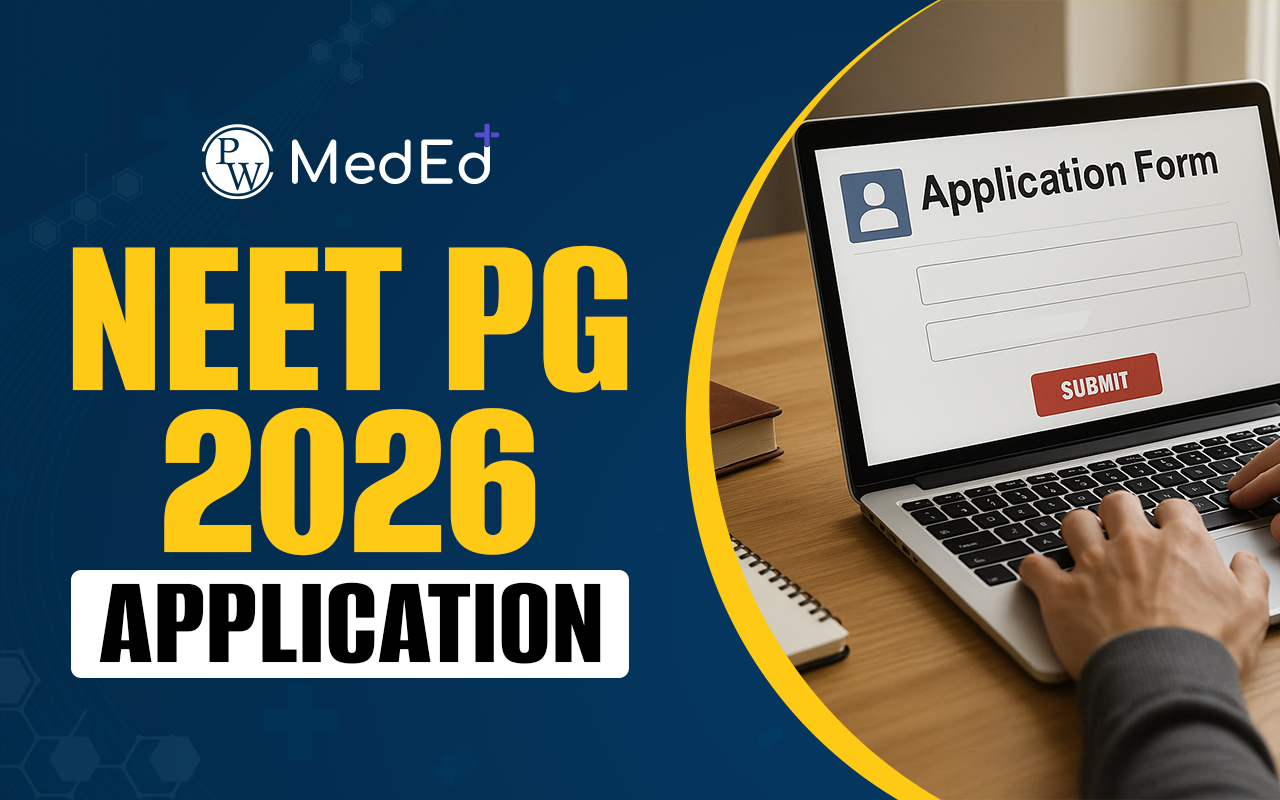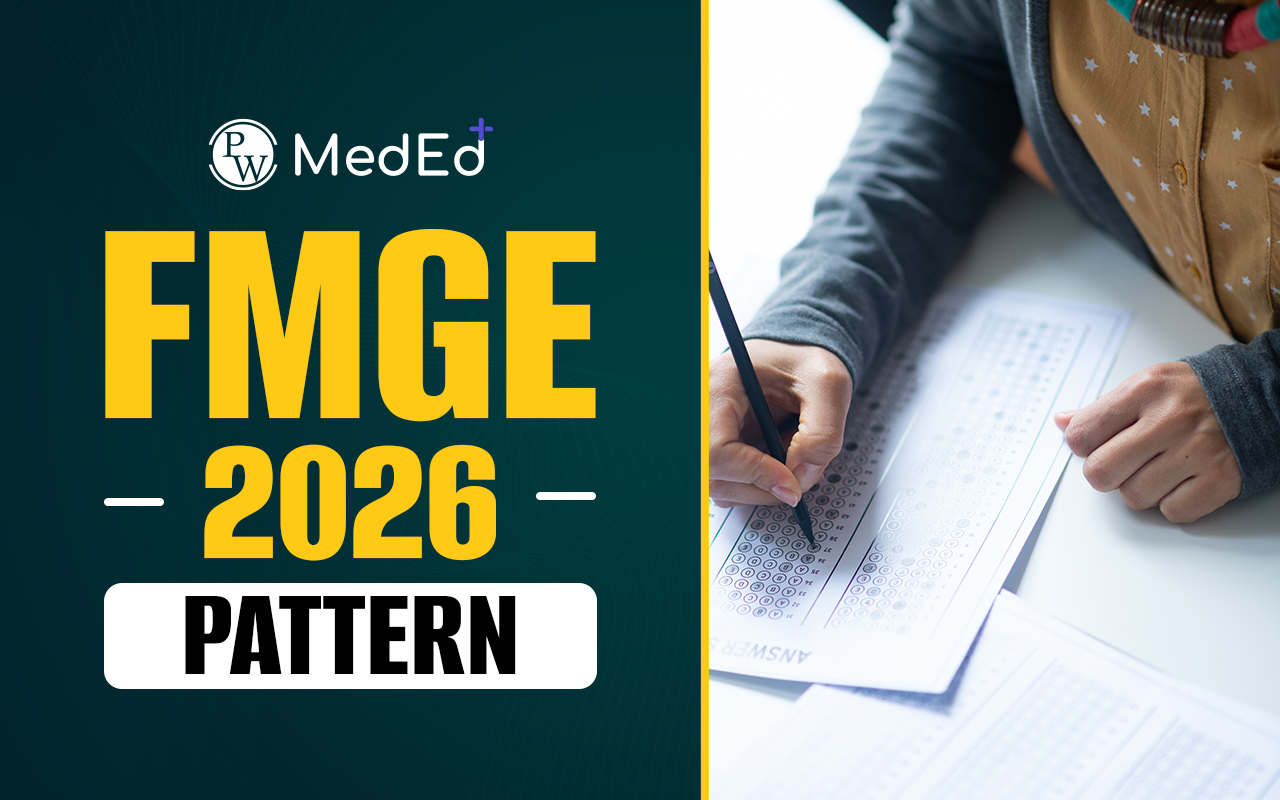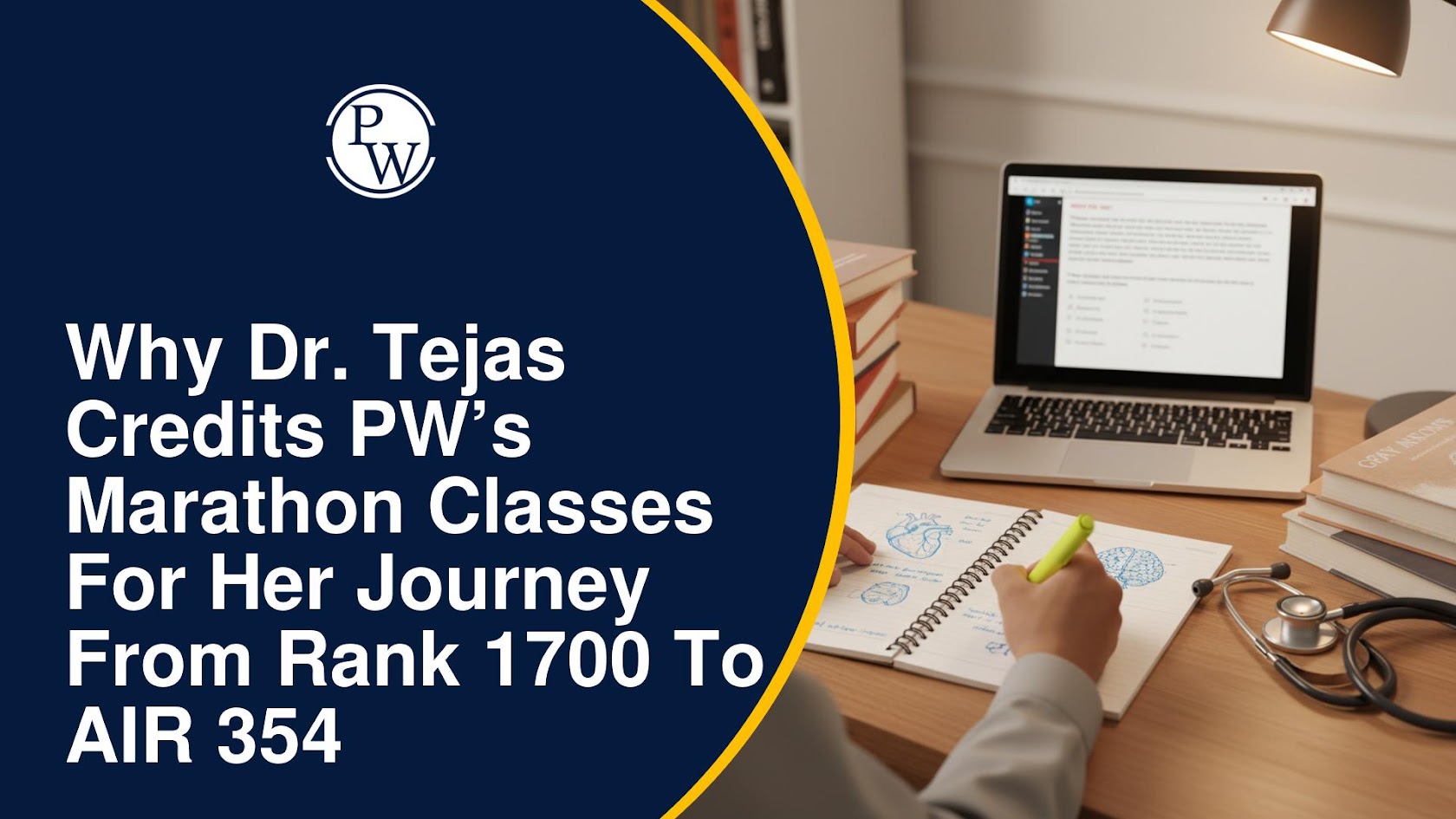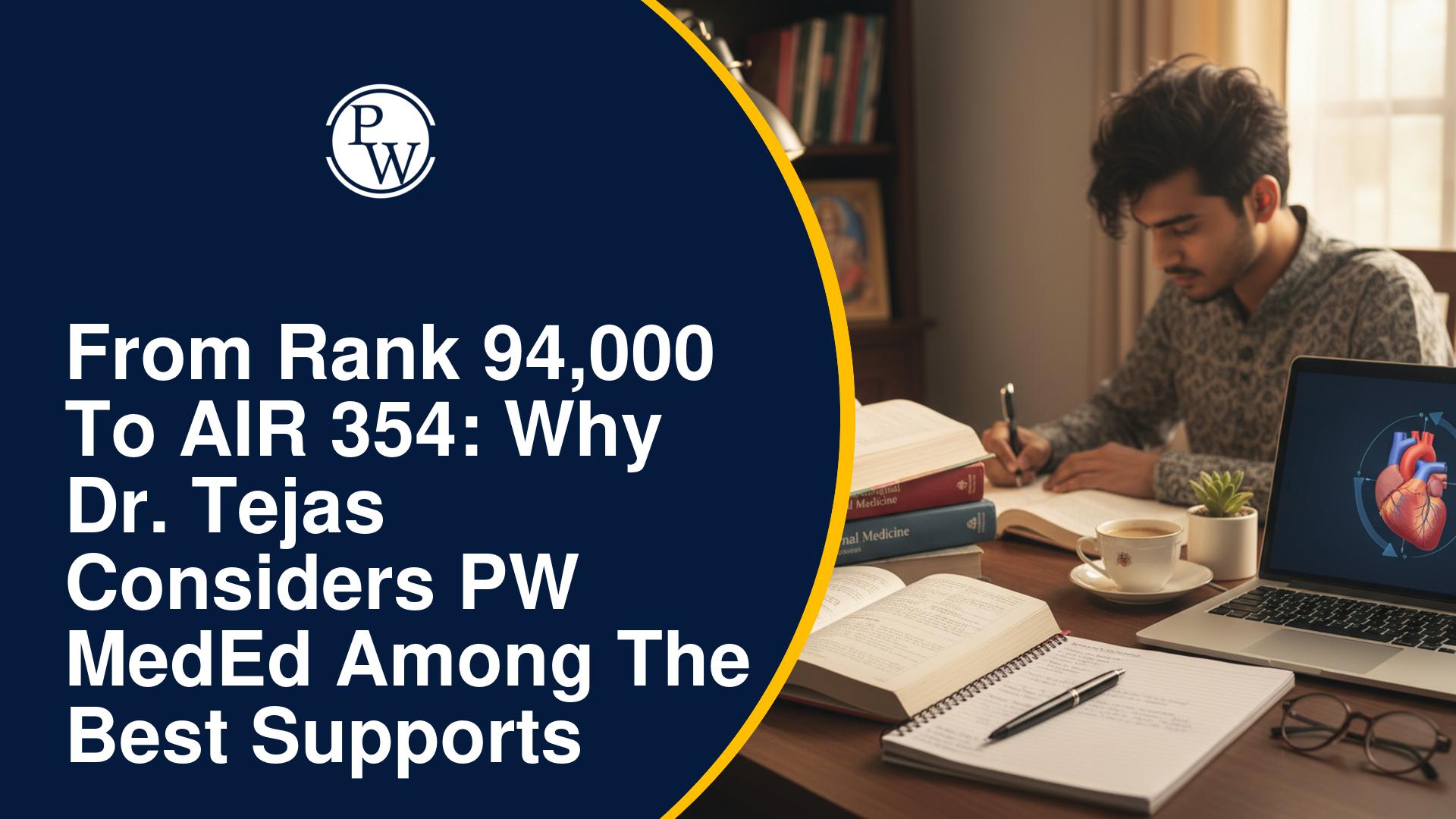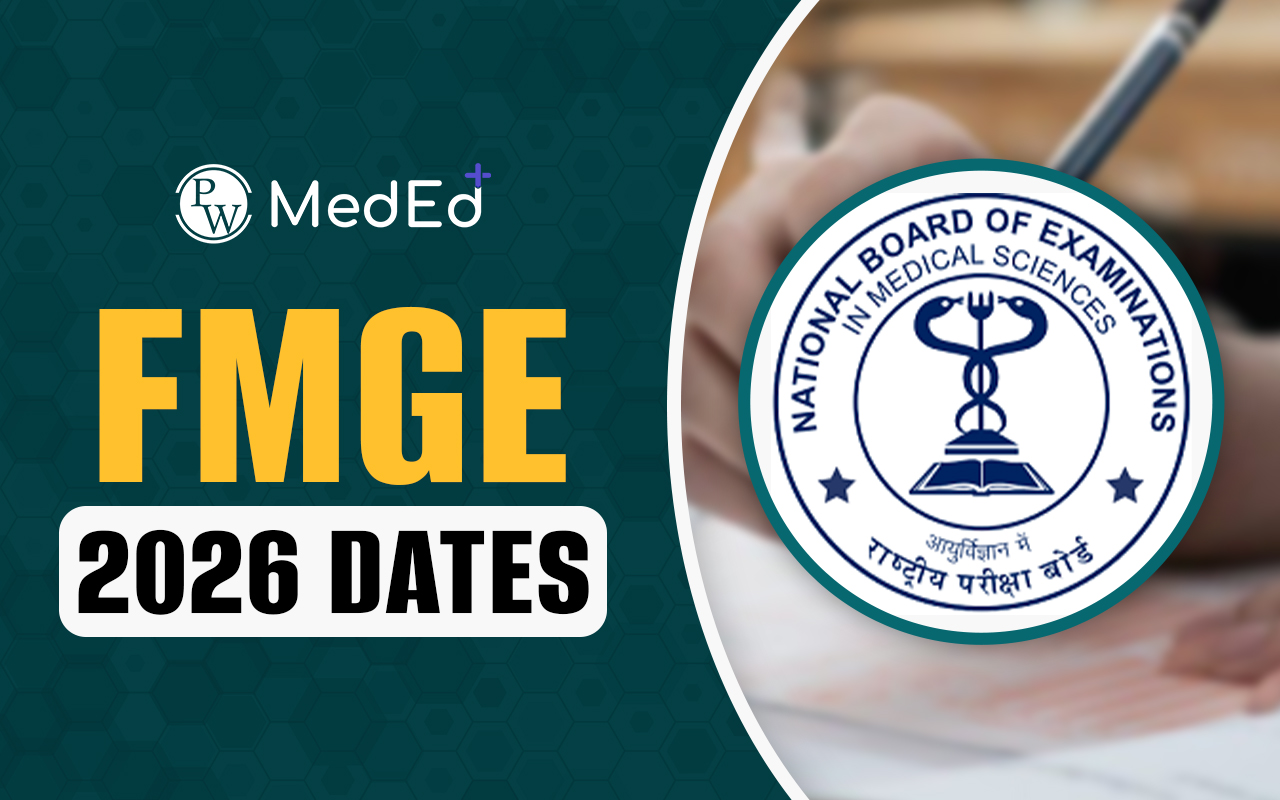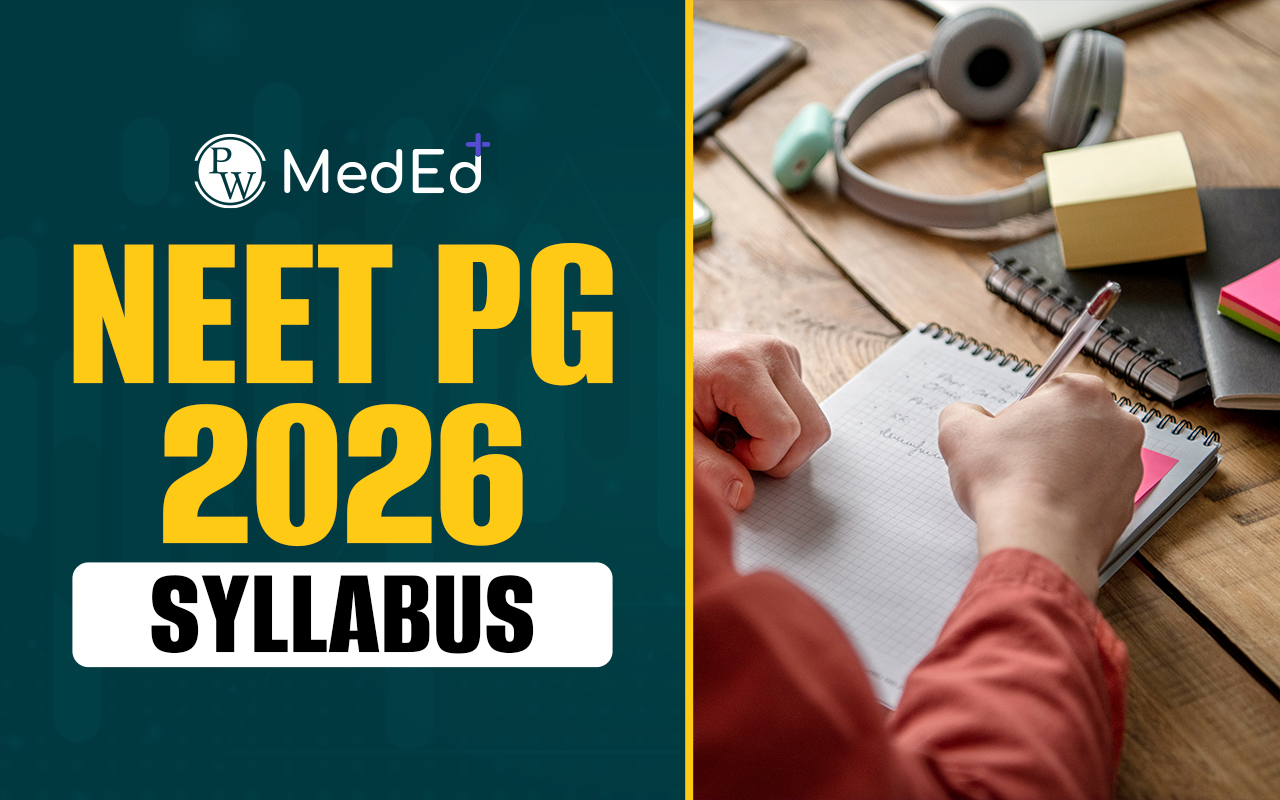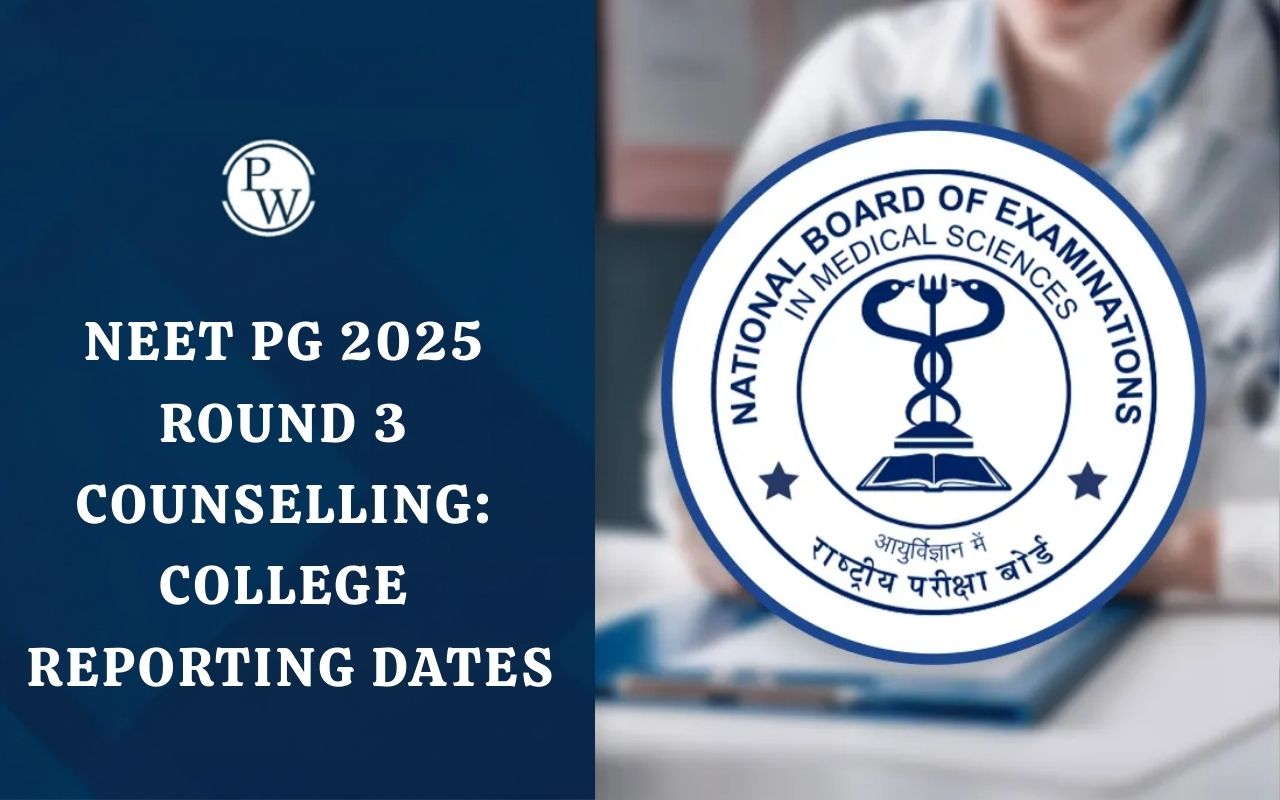
INI CET 2025 Syllabus November Exam is like a roadmap for your studies. It covers all subjects from MBBS, divided into Pre-Clinical, Para-Clinical, and Clinical phases. Knowing the syllabus helps you make a simple study plan. You can decide which subjects are more important and avoid wasting time on less useful topics.
The exam is on November 9, 2025, and it will be online with 200 questions in 3 hours. AIIMS, New Delhi, conducts the test. The syllabus tells you what to study, and the exam pattern explains the marking system.
Join NEET PG Online Coaching - Enroll Now
INI CET 2025 Syllabus November Exam Overview
The INI CET 2025 Syllabus November Exam is very important for PG medical entrance preparation. The overview table gives simple details like exam body, format, and process. It works as a short guide to help you plan better and study in the right way.
|
INI CET 2025 Syllabus November Exam Overview |
|
|
Particulars |
Details |
|
Recruiting Body |
All India Institute of Medical Sciences (AIIMS), New Delhi |
|
Admission |
MD, MS, DM, MCh, MDS |
|
Exam Date |
November 9, 2025 |
|
Exam Mode |
Computer-based test (CBT) |
|
Exam Duration |
3 hours (180 minutes) |
|
Total Marks |
200 marks (1 mark for each of the 200 questions) |
|
Syllabus |
Pre-Clinical, Para-Clinical, and Clinical subjects |
|
Official Website |
www.aiimsexams.ac.in |
Subject-Wise INI CET 2025 Syllabus November Exam
The INI CET 2025 Syllabus November Exam has three parts with different subjects. Knowing this makes study easy and clear. The three parts are:
-
Pre-Clinical Phase: This covers foundational subjects.
-
Para-Clinical Phase: This focuses on a mix of lab and patient-related subjects.
-
Clinical Phase: This deals with patient care and real-world medical practice.
INI CET 2025 Syllabus November Exam PDF Download
Candidates can get the INI CET 2025 Syllabus November Exam PDF from the AIIMS website when it is out. The PDF has details of Pre-Clinical, Para-Clinical, and Clinical subjects with the exam pattern. Students should keep a copy to study in a proper and easy way.
INI CET 2025 Syllabus November Exam for Pre-Clinical Subjects
This section covers the basic sciences you learned early in your medical training. It's the foundation of your medical knowledge.
Anatomy
Anatomy is the study of body parts and how they are built. It covers big organs we can see and small cells and tissues that form them. The topics include:
-
Gross Anatomy: This is the study of body parts you can see without a microscope.
-
Microanatomy: This is about tissues and cells, which you need a microscope to see.
-
Neuroanatomy: This focuses on the nervous system, like the brain and nerves.
-
Embryology & Genetics: This covers how a human develops from a single cell and how traits are passed down.
Biochemistry
Biochemistry is the study of chemical changes inside the body. It tells how food gives energy and how genes work. Key topics are:
-
Biomolecules: This includes things like carbohydrates, proteins, and fats.
-
Metabolic Pathways: This is about how your body creates and uses energy.
-
Hormones and PH: This covers how hormones work and the acid-base balance in your body.
-
Molecular Biology: This is about DNA, RNA, and genes.
Physiology
Physiology is the scientific study of how the body and its various systems function. It explains the mechanics and processes that keep us alive, from how our heart pumps blood to how our brain sends signals. The syllabus covers:
-
General Physiology: Basic rules of how the body functions.
-
Cardiovascular System: How the heart and blood vessels work.
-
Respiratory System: How you breathe.
-
Neurophysiology: How the nervous system works.
-
Gastrointestinal System: How digestion works.
INI CET 2025 Syllabus November Exam for Para-Clinical Subjects
This phase bridges the gap between basic sciences and clinical practice. It involves subjects that deal with diagnosing and understanding diseases.
Pathology
Pathology is the study of diseases, their causes, and effects on the body. It looks at tissues, organs, and body fluids to explain how sickness starts and spreads. Topics include:
-
Hypersensitivity: How your body overreacts to certain things, like in allergies.
-
Tumour Markers: Substances that can indicate cancer.
-
Glomerulonephritis: A type of kidney disease.
-
Coronary Artery Disease: A common heart condition.
Pharmacology
Pharmacology is the science of how medicines affect the body. It explores the different ways drugs work, their uses in treating diseases, and their potential toxic effects. You'll study:
-
Neuropharmacology: Drugs that affect the nervous system.
-
Clinical Pharmacology: How drugs are used in patients.
-
Toxicology: The study of poisons.
Microbiology
Microbiology is the study of tiny living organisms, including bacteria, viruses, and fungi. This field is essential for understanding how these microbes cause disease and how we can prevent or treat them. The topics are:
-
Vectors: Things like mosquitos that spread disease.
-
Viral Hepatitis Serology: Tests for liver viruses.
-
Immunodeficiency Disorders: Conditions where the immune system doesn't work well.
Forensic Medicine
Forensic Medicine is a specialized field that applies medical knowledge to legal cases. It helps answer critical questions in criminal investigations by examining evidence related to injuries and death. Key topics include:
-
Toxicology: How to detect poisons in a body.
-
Firearm Injuries: How to analyze gunshot wounds.
-
Autopsy methods: How to perform a post-mortem exam.
Community Medicine
Community Medicine is the field of medicine focused on public health. It aims to improve the well-being of entire communities through disease prevention and health promotion. Topic includes
-
Epidemiology: The study of disease patterns in populations.
-
Demography: The study of populations.
-
Hospital Waste Management: How hospitals safely dispose of waste.
INI CET 2025 Syllabus November Exam for Clinical Subjects
This is the most important part of the INI CET 2025 Syllabus November Exam. It focuses on the day-to-day work of a doctor. It covers patient care and treatment.
Surgery & Allied Subjects
Surgery and Allied Subjects covers various medical fields that involve surgical procedures. It includes :
-
General Surgery: Common surgical procedures.
-
Orthopaedics: Bone and joint surgery.
-
E.N.T.: Ear, Nose, and Throat.
-
Ophthalmology: Eye care.
Medicine and Allied Subjects
Medicine and Allied Subjects is a broad field focusing on diagnosing and treating a wide range of illnesses. It includes :
-
Internal Medicine: Diagnosis and treatment of internal illnesses.
-
Psychiatry: Mental health.
-
Dermatology: Skin diseases.
Obstetrics & Gynaecology
Obstetrics and Gynaecology is the medical field specializing in women's health. It focuses on care during pregnancy, childbirth, and the reproductive system.
-
Postpartum Haemorrhage: Bleeding after childbirth.
-
Preeclampsia: A serious pregnancy complication.
-
Menstrual cycle: The monthly cycle of a woman's body.
Paediatrics
Paediatrics focuses on the health of children from birth through adolescence. It covers a wide range of topics, including treating diseases and monitoring normal growth.
-
Neonatal sepsis: A serious infection in newborns.
-
Developmental milestones: What a child should be able to do at certain ages.
-
Bronchial Asthma: A common breathing condition in children.
Clinical Postings
This section is about the practical experience you gain in different hospital departments. It's about what you learned while working with patients.
INI CET 2025 Exam Pattern
The INI CET 2025 pattern gives you a clear picture of the exam. The exam is held on a computer. It is in English. Some questions have a single correct answer. Others can have multiple correct answers. There is also a negative marking system.
|
INI CET 2025 Exam Pattern |
|
|
Detail |
Features |
|
Mode |
Computer-based |
|
Duration |
3 hours (180 minutes) |
|
Type of questions |
Objective (Multiple Choice) |
|
Number of questions |
200 |
|
Negative marking |
Yes |
Why INI CET 2025 November Exam Syllabus Important?
Knowing the INI CET 2025 November Exam Syllabus is a huge advantage. It helps you prepare smartly. The syllabus shows you all the subjects to be covered in INI CET Nov 2025 Syllabus. It is the first step in your preparation journey. Here are some reasons why INI CET 2025 November Exam Syllabus is important:
-
Strategic Preparation: The syllabus helps you make a study plan. You can allocate time to each subject. You can also identify your weak and strong areas.
-
Focus on Important Topics: The syllabus highlights important topics. This prevents you from wasting time on less important things. The syllabus tells you what to study and how much to study.
-
Time Management: With a clear syllabus, you can manage your time better. You'll know which topics need more attention. This is key to success.
The INI CET 2025 November Exam Syllabus is a must-have tool. It guides your entire study strategy.
Preparation Tips to Cover INI CET 2025 Syllabus November Exam
Now that you know the INI CET 2025 Syllabus November Exam, how do you prepare? Preparing for the INI CET 2025 exam requires a smart strategy. Once you have the INI CET 2025 Syllabus November Exam, you can create a strong plan to get ready for the test. Here are some tips:
-
Create a Study Plan: Use the syllabus to make a schedule. Allocate time to each subject. Give more time to subjects you find difficult.
-
Use Past Papers: Solve previous years' question papers. This helps you understand the INI CET 2025 pattern.
-
Revise Regularly: Don't just study new topics. Go back and review old ones. Revision is key to remembering information.
-
Stay Healthy: Get enough sleep and eat well. Your brain needs to be in top shape for the exam.
INI CET 2025 Syllabus November Exam FAQs
Why is the INI CET 2025 Syllabus November Exam so important?
Is the INI CET 2025 syllabus different from previous years?
Where can I find the official INI CET 2025 Syllabus November Exam PDF?
What is the INI CET 2025 pattern?
Do I need to study all the topics in the INI CET 2025 Syllabus?

